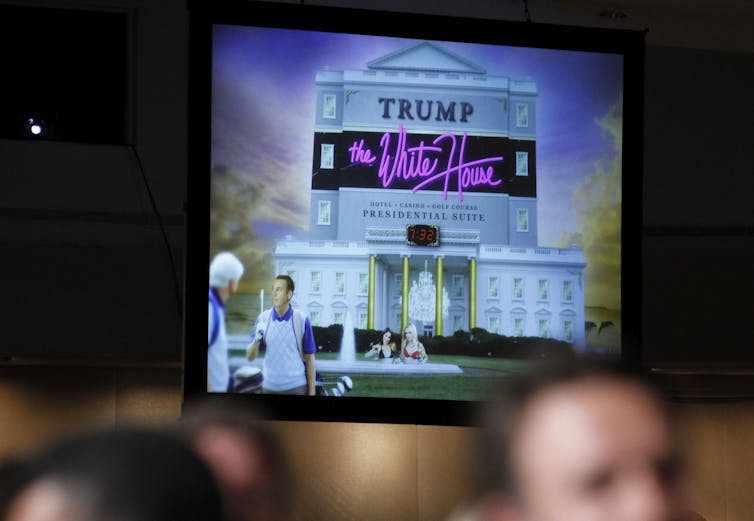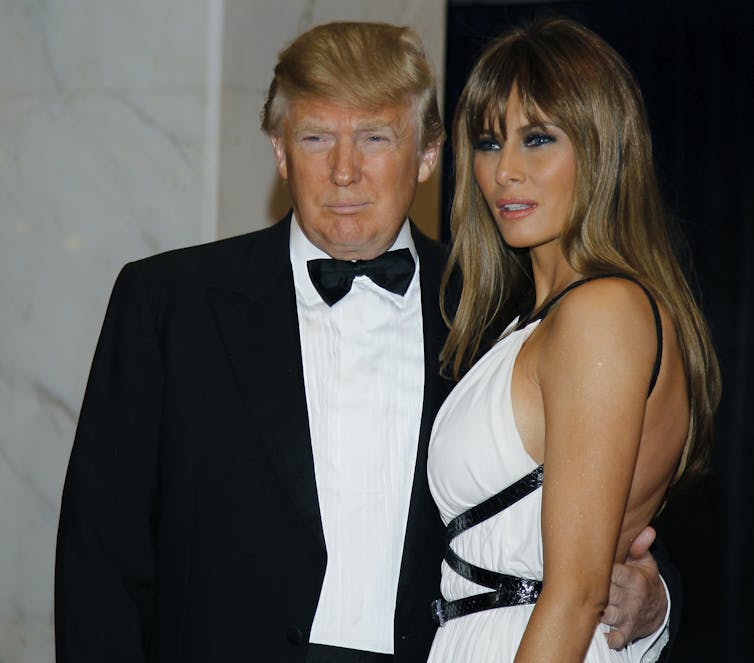With Spinal Tap II: The End Continues hitting cinemas, now is the perfect moment to revisit its precursor, one of most influential and hilarious comedy films ever made, 1984’s This Is Spinal Tap.
Directed by Rob Reiner and co-written by Reiner and the stars of the film, Christopher Guest (as Nigel Tufnel), Michael McKean (David St. Hubbins) and Harry Shearer (Derek Smalls), the mockumentary film follows a fictional British heavy metal band on a disastrous tour of the United States.
As audiences dwindle, equipment fails and egos clash, the band’s decline satirizes rock’n’roll excess and the absurdities of the music industry.
Widely acknowledged as a cult classic, the film codified the “straight-faced” style of mockumentary that became central to modern comedies such as The Office and Modern Family.
Its dry and absurdist tone, handheld camerawork, faux interview format and largely improvised dialogue were inspirational for many contemporary comedy creators, including Ben Stiller, Mike Schur and Ricky Gervais. It also established a tone and style Guest would return to throughout his filmmaking career, in movies such as Waiting For Guffman (1996), Best In Show (2000) and A Mighty Wind (2003).
The band which could exist
Beyond pure nostalgia and the legacy of the mockumentary style, This Is Spinal Tap remains a cult favourite because of the clever and farcical way it skewers and satirises rock excess.
As Roger Ebert stated, although the band does not exist,
the best thing about this film is that it could. The music, the staging, the special effects, the backstage feuding and the pseudo-profound philosophizing are right out of a hundred other rock groups and a dozen other documentaries about rock.
In the early 1980s, MTV was on the rise. Rock tour documentaries from bands like Led Zeppelin, Black Sabbath and The Band established new conventions of “rock reality” in films such as The Song Remains The Same (1976), Black and Blue (1980) and The Last Waltz (1978). The culture of excess surrounding some of these artists provided fertile ground for parody.
Ego clashes, overblown stage shows and catastrophic tours were commonplace. Spinal Tap’s deadpan mockumentary style was both a timely satire, and an authentic cultural commentary.
The brilliance of the film goes beyond its ribald satire. Of vital importance is the skilful musicianship of the cast. Even if they are a joke, Spinal Tap can play. The great rock riffs sustain the silliness of the lyrics in songs like Sex Farm and Big Bottom.
In addition, Guest and McKean slyly navigate a bromance at the heart of the film between their characters, Nigel and David.
When David’s girlfriend, Jeanine (June Chadwick) arrives to join the tour, things really go off the rails, leading to an acrimonious breakup between the bandmates.
Their reunion at the film’s conclusion reveals that the film is truly a love story between two vain yet endearing buffoons.
Going to 11
Moments such as Nigel boasting about his amplifier going “to 11”, Derek’s airport security incident, the band getting lost on the way to the stage, and the 18-inch (instead of 18-foot) Stonehenge stage prop have become iconic. But there are so many great gags on the periphery, layered through the largely improvised dialogue.
A personal favourite occurs during an early band interview. Reflecting on a series of strange deaths that have afflicted Spinal Tap’s drummers throughout the years, and acknowledging that their first drummer died in “a bizarre gardening accident”, Tufnel states “the authorities said best leave it unsolved really”.
There are also subtle visual jokes embedded through the film: the sudden emergence of cold sores for each band member in the early stages of the tour (at roughly the same time the band’s groupies enter the frame); the band being second billed behind an Amusement Park Puppet Show as the tour falls apart; Nigel needing to quickly tune the violin he’s using to augment an overblown guitar solo.
Online lists such as Cracked’s “50 funniest moments in This Is Spinal Tap” demonstrate the sheer volume of funny moments.
Modern audiences would no doubt recognise the film’s style being mimicked in contemporary works such as The Office, Parks and Recreation, Summer Heights High and What We Do in the Shadows.
Its influence has been directly acknowledged in the lead-up to the release of the sequel by creators who owe a debt to its clever format.
Spinal Tap II: The End Continues reunites Tufnel, St. Hubbins and Smalls, now estranged, 41 years after the original film.
They are reluctantly coming back together for one final concert they are legally bound to perform. Documentarian Marty Di Bergi (Reiner) returns to showcase their legacy, modern mishaps and the realities of being an ageing rocker.
It is an apt sequel in a world where legacy bands and artists such as The Rolling Stones, Springsteen and McCartney are still performing in their 70s and 80s.
The sequel is not just a reunion gig. It is a reminder of why the original remains one of the sharpest and most influential comedies ever made – and one well worth a revisit.![]()
Adam Daniel, Associate Lecturer in Communication, Western Sydney University
This article is republished from The Conversation under a Creative Commons license. Read the original article.



